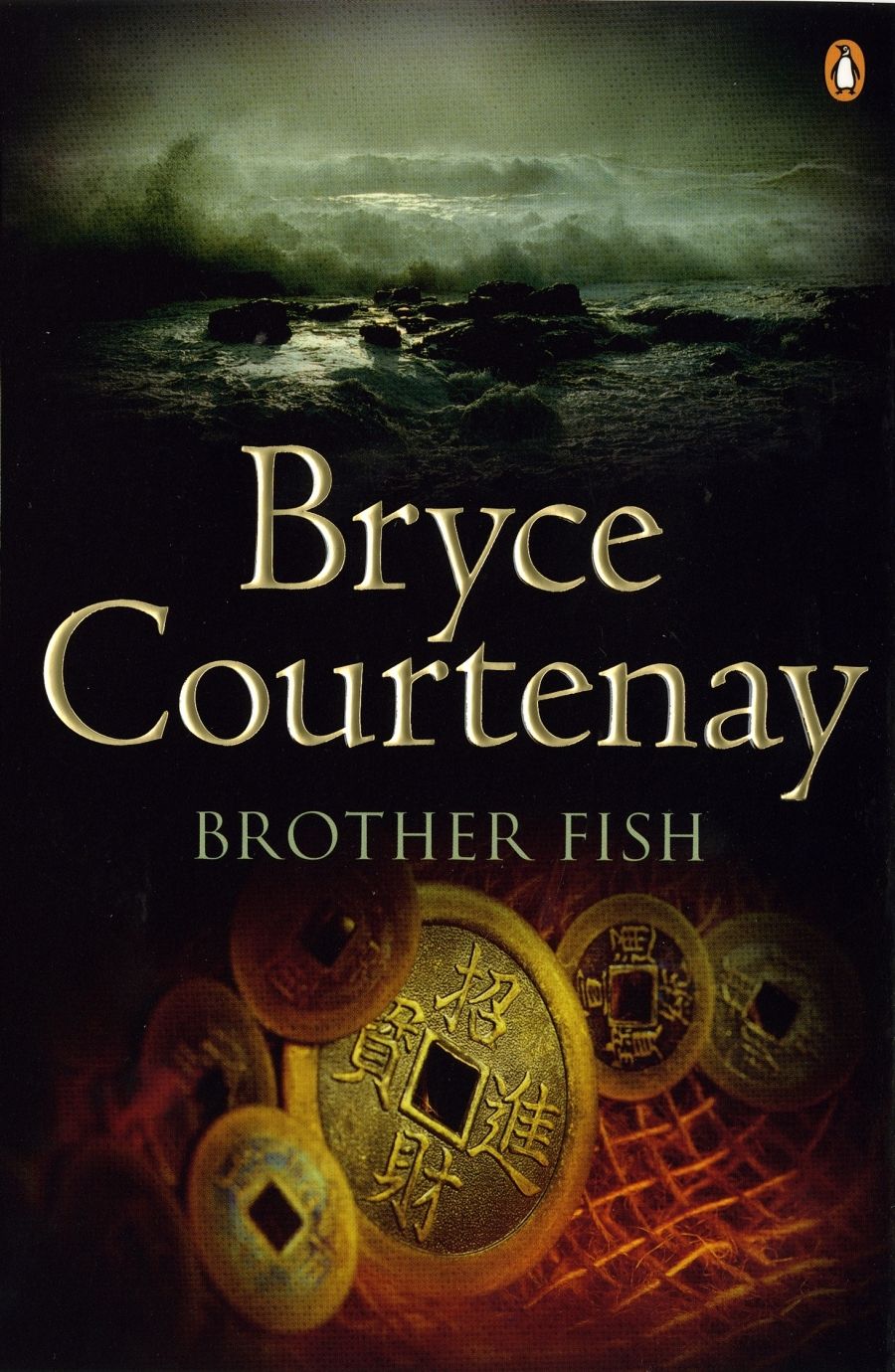
- Free Article: No
- Contents Category: Fiction
- Review Article: Yes
- Online Only: No
- Custom Highlight Text:
What a phenomenon Bryce Courtenay is. In a world where we are constantly being told that books are on the way out, he sells them by the barrow-load. They’re big books, too. This one weighs 1.2 kilograms and is seven centimetres thick. It’s the kind of book that makes a reviewer wish she was paid ...
- Book 1 Title: Brother Fish
- Book 1 Biblio: Viking, $49.95 hb, 842 pp, 0670042080
The black orphan, Jimmy Pentacost Oldcorn, speaks in a black American dialect scrupulously rendered with every ‘dis’ and ‘dat’. This is his choice: he can use perfect standard English when he wishes, and picks up German, Cantonese, Mandarin and Japanese effortlessly, but he prefers not to ‘talk like some honky turkey’, as he puts it. However, the incessant labouring of the accent soon becomes tiresome, even though Jimmy is a great guy – a paragon of tact whose every utterance is a pearl of wisdom.
Jacko himself is a great one for being embarrassed by any kind of praise. There were always ‘plenty of blokes worse off’ who didn’t get medals. By his own admission, he has ‘never had a racist thought in my life’. This from the soldier who has been expressing undisguised contempt for the ‘nogs’ – North Koreans – and is happy to write off all South Koreans as ‘cowards and no-hopers’. It is a matter, I suppose, of defining your terms. To Jacko, racism applies to relations between English-speaking whites and blacks, whether Australian or American. Asians can be happily consigned to a nether land of racial stereotypes. He also confidently states that ‘women think differently from men. They can be deadset cunning and manipulative.’ He goes on to explain how the 1950s were ‘a man’s world’ and we poor sheilas had to behave like that to get anywhere, but in terms which are likely to make the mildest of feminists bristle somewhat.
Jacko, of course, is the narrator. A first-person narrator can express all sorts of views that are ironically undercut by the author’s implied values. But I can see no sign of this in Brother Fish. Perhaps this is, finally, the secret of Courtenay’s success. He doesn’t bother his readers with any of that liberal stuff about what you can and can’t say. He takes us back to a time when nobody would object if you labelled all women as manipulative and all Asians as inscrutable. As long as you say you’re not racist, or sexist, then you’re not. The very language is nostalgic, full of old-fashioned Australian colloquialisms and what present-day television authorities would call ‘medium level coarse language’. Like all nostalgia, it harks back to a simpler time that never existed, but that is hard-wired into everyone: a time when if you made a bit of an effort everything turned out right; where everyone has a better nature which can be appealed to; and where no injury leaves a permanent scar, either physical or emotional. In other words, back to childhood. Courtenay sweeps away all the complexities of adult life and provides simple, reassuring morality tales that people can feel good about reading, because they are embedded in so much information that they must be educational.


Comments powered by CComment